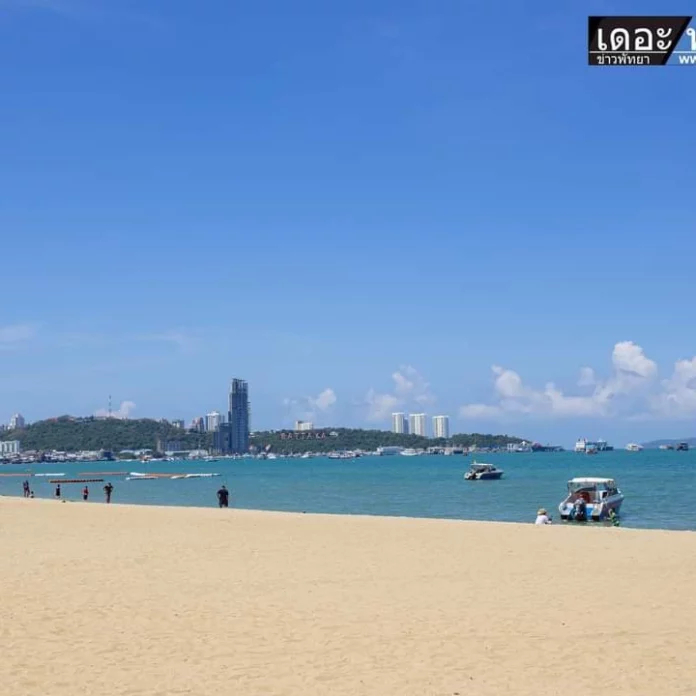Thailand-
It seems like every day another organization, association, group, business, or something similar is in the news suggesting/demanding/asking for the Thai Government to lift or ease Covid-19 restrictions, especially Test and Go and Thailand Pass.
In the past two weeks alone the Federation of Thai Industries (FTI), Thai Chamber of Commerce, Thai Tourism Council, Thai Hotel Association, Thai Entertainment Association including One Voice in Pattaya, and many more have called for the Thai Government to basically get rid of Thailand pass and Test and Go. Some have also asked for the almost year-long legal ban on nightlife and bars to be lifted.
These are not small-time players asking to ease the rules but powerful groups and corporations representing billions of baht. Several months ago the voices were mostly smaller groups and organizations but with nearly every government opposition group joining the chorus of voices and now well-regarded groups like FTI saying restrictions can go it isn’t a minor movement anymore.
This comes as other countries surrounding Thailand also ease their rules and restrictions for entry, many making it much easier. This, in turn, has caused Thailand’s massive tourism industry to ask..what is going on?
To be fair, the Thai government has slowly eased some restrictions, including an RT-PCR test before travel and the number of days of quarantine for unvaccinated folks. They have announced a plan to treat Covid19 as endemic by June or July. This is not, however, fast enough for those who rely on tourism.
So, as countries like Singapore, Vietnam, Cambodia, and others ease restrictions and let tourists back in easier or fully open all business sectors, why is Thailand taking a much slower and cautious route? After all, tourism in Thailand is responsible for a significant (but often debated how much) percent of GDP.
Well, let’s look at why Thailand isn’t moving faster. According to Public Health Minister Anutin Charnvirakul, about 2 million elderly and vulnerable have still not been fully vaccinated. Yes, many of these folks are by choice but the Thai government is doing all they can to practically beg these folks to get vaccinated.
Moreover, Thailand’s biggest annual holiday, Songkran, is later this month and has led to many weeks of back and forth on what should be allowed and what should not. Thai health authorities are seriously concerned about the festival, even if the parties and water fights are banned for the third year in a row. This is because the festival is mainly about Thai people traveling home, the single biggest annual migration of Thai people. This comes back to the two million vulnerable.
With so many people traveling back to rural provinces where many elderly and vulnerable live, many still unvaccinated, Thai health authorities have chosen to, for better or worse, use Songkran as a test. Yes, tourism zones like Pattaya and Phuket are highly vaccinated and foreign tourists and businesses that serve them are ready to “get back to work” so to speak. But the large majority of the country that does not depend on tourism or entertainment does not see the need to rush, especially as Thailand will watch and see what happens in other countries nearby first.
Additionally, in May, Bangkok and Pattaya go to the polls for the first time in many, many years. Almost a decade, in fact, in Pattaya. This will also bring many elderly and vulnerable out and about and bring much movement in these areas.
The Thai government certainly hears its business sector pleading to loosen the restrictions and basically fully reopen the borders. With tax and other items, they of course stand to benefit as well.
On the other hand, they also certainly hear the concerns of doctors who want just a little more time to try to convince the elderly and vulnerable to get fully vaccinated before reopening the country fully. We aren’t going to get into the argument here, by the way, about if fully reopening borders or nightlife raises risk or not with so many local cases already in the country. What we will say, however, is that both sides have expressed their case and it appears, for now, the government has made its decision.
Which, quite honestly, should not be surprising to anyone. Since the pandemic began the government has mostly watched other countries, moved cautiously and carefully, and took small steps versus big ones (for the most part). This appears to be, for now, the same case, and Thailand’s three-four month plan to treat Covid-19 as endemic will remain, even as unpopular as it is with so many people.
Until Songkran, and possibly the elections, are well in the rear-view mirror and Thailand can look at the data from both while giving more time for further vaccination campaigns, Thailand will, regardless of what critics say, likely stay half-open as it is now, with a full reopening probably arriving around June or July.
For now, there is not much any of us can do except wait and see.




